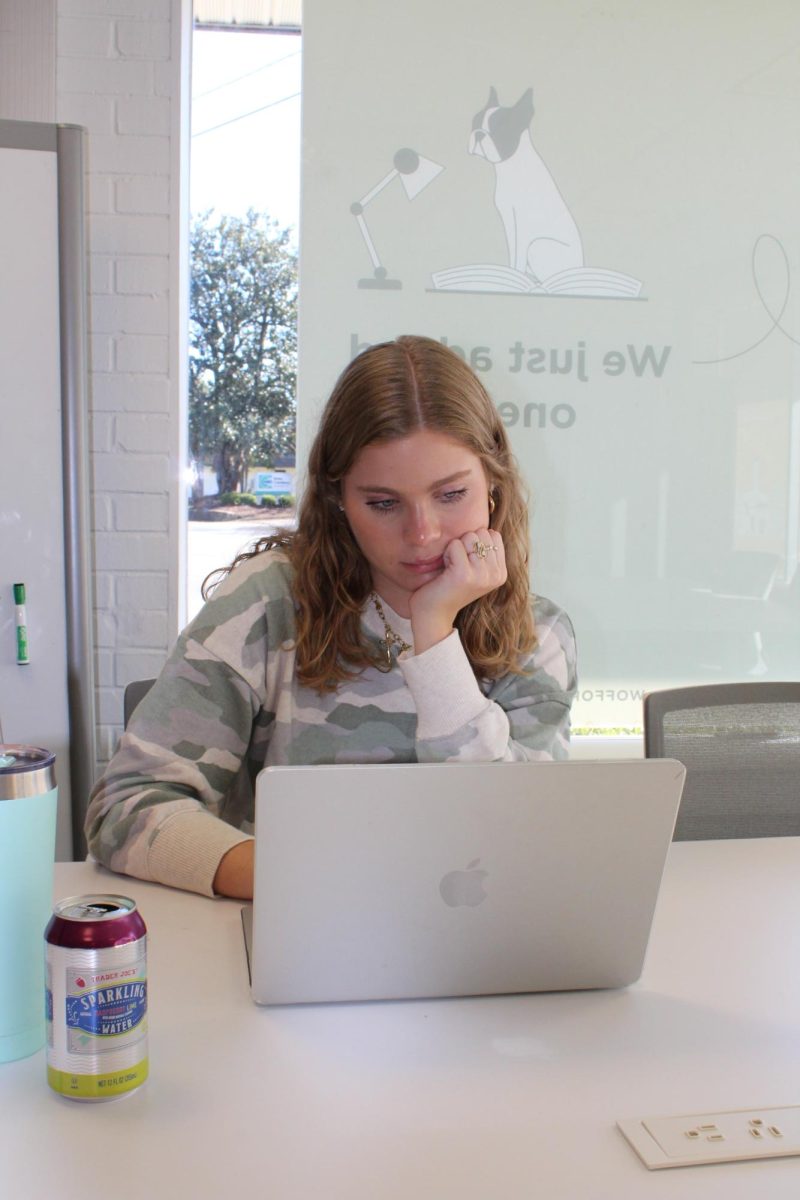By: James Barkley, staff writer
Wofford basketball has a huge impact on its community through bringing a variety of people together to cheer for their team, but this year the teams used their platform to help the community in a different way. On Feb. 25, Wofford not only faced off against Mercer University, but also held its first ever Zero Waste basketball game. The Terriers may have fallen to the Bears 69-68, but this game played a big role in improving the environment.
With all the people that show up to Wofford basketball games, it’s easy to see why the Jerry Richardson Indoor Stadium was the perfect place to start raising awareness about how to properly dispose of trash. One aspect of the new stadium that hinders sustainability programs, however, is that there are no actual compost bins inside.
Led by Dr. Amy Telligman, a group of 17 volunteers were recruited to help the cause by educating people at the game on how to dispose of their trash the right way. They held signs and answered any questions that people had. Among these volunteers was Alex Hoots, who graduated from Wofford in 2017. Hoots is currently interning in Athletic Operations at CU-Boulder, but returned to Spartanburg to help improve waste disposal at her alma mater.
A Zero Waste game is defined as diverting 90% of game-day waste from the landfill by composting and recycling. By the end of the game, 219 pounds of recyclables and even more compostables were diverted.
Zero Waste is a growing movement in athletics and has even been highlighted in the national level as the NFL, PepsiCo, Aramark and the U.S. Bank Stadium all teamed up to properly dispose of the waste created from Super Bowl LII in Minneapolis. Zero waste seems to have a positive reaction from the Wofford community. Showing their involvement, the Department of Athletics put together a video that was showed at halftime that highlighted some individuals who practiced responsible waste disposal around campus. The video featured President Nayef Samhat, basketball coach Mike Young, faculty athletic rep Jameica Hill, and some of Wofford’s very own athletes.
Wofford took a positive first step in educating its community on waste disposal, but that’s not where plans stop to better the community’s environment. One of the students who played a large role in making this event happen was Jesse Girolamo.
“I helped design the t-shirts, create posters, create the idea of a video before the game promoting zero-waste and helped organize where the stations of waste-team members would be,” Girolamo said. Girolamo has many ideas for how Wofford can continue to improve waste disposal. For instance, Girolamo is currently working on getting compostable trash bags for the big trashcans in Phase 5. There are many ways the community can come together to improve the disposal of waste, but as Girolamo noted, “For any of this to happen, I believe people need to be more informed of the impacts waste can have on the environment and the beautiful creatures that inhabit this planet.”
Carter Atchison, a junior for Madison, Ga., is another one of the students who are leading the movement to improve waste disposal all over campus. As head of Facility Affairs, Atchison wants to make an effort to make everything at Wofford compostable while also making it more convenient for students to properly dispose of waste around campus. One idea that Atchison has proposed is installing recycling bins at the Greek Row. College kids can be lazy when it comes to disposing of their trash, and Atchison is aware of this. “We need to make it convenient for college kids, that’s the only way.” Atchison believes this would vastly improve the disposal of trash, especially beer cans, and would help control the overall quality of the row.
This Zero Waste basketball game was a successful first step to making Wofford a more environmentally friendly campus. Telligman doesn’t plan on this being the last event like this either, as she hopes other sporting events on campus will become zero waste as well. While Wofford may not have been able to pull off the win against Mercer that night, the efforts were successful in educating the community on their responsibility to the environment and a new culture of properly disposing waste has begun.
























